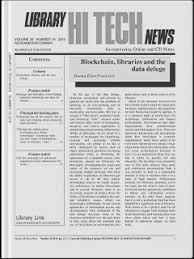Digital Trends Shaping the Future
The digital landscape is constantly evolving, with new trends emerging that have the potential to reshape industries and redefine the way we live and work. Understanding these trends is crucial for businesses and individuals alike to stay ahead of the curve. Here are some of the most significant digital trends currently shaping the future.
Artificial Intelligence and Machine Learning
Artificial Intelligence (AI) and Machine Learning (ML) continue to be at the forefront of digital innovation. These technologies are being integrated into various sectors, from healthcare to finance, offering unprecedented opportunities for automation and efficiency. AI-driven analytics provide deeper insights into consumer behaviour, enabling personalised marketing strategies that enhance customer experiences.
Internet of Things (IoT)
The Internet of Things (IoT) refers to a network of interconnected devices that communicate with each other over the internet. This technology is transforming homes into smart homes, where appliances can be controlled remotely via smartphones or voice assistants. In industries, IoT facilitates real-time monitoring and management of equipment, leading to improved productivity and reduced downtime.
5G Technology
The rollout of 5G networks promises faster internet speeds and more reliable connections, paving the way for advancements in mobile technology. This next-generation connectivity will support more robust applications in augmented reality (AR), virtual reality (VR), and autonomous vehicles, driving innovation across various sectors.
Blockchain Technology
Originally developed as a ledger for cryptocurrency transactions, blockchain technology is now being explored for its potential in enhancing security and transparency across multiple industries. From supply chain management to secure voting systems, blockchain offers a decentralised solution that reduces fraud and increases trust among stakeholders.
Remote Work Technologies
The shift towards remote work has accelerated due to recent global events, leading to an increased reliance on digital collaboration tools such as video conferencing software, cloud storage solutions, and project management platforms. Companies are adopting flexible work arrangements as they recognise the benefits of remote work in terms of productivity and employee satisfaction.
Cybersecurity Enhancements
As digital transformation progresses, cybersecurity remains a top priority for organisations worldwide. With increasing cyber threats targeting sensitive data, businesses are investing in advanced security measures such as multi-factor authentication (MFA), encryption technologies, and regular security audits to protect their assets from cyberattacks.
Conclusion
The digital trends outlined above are just a glimpse into the vast array of innovations shaping our future. As technology continues to advance at a rapid pace, staying informed about these trends will be essential for individuals and businesses looking to thrive in an increasingly digital world.
Exploring Key Digital Trends: Insights into AI, IoT, 5G, Blockchain, Remote Work, and Cybersecurity
- What are the current digital trends shaping industries?
- How is Artificial Intelligence (AI) influencing digital trends?
- What impact does the Internet of Things (IoT) have on businesses?
- What are the benefits of 5G technology in driving digital innovation?
- How can blockchain technology revolutionise data security in the digital age?
- What are the key remote work technologies that support virtual collaboration?
- Why is cybersecurity crucial in the context of evolving digital trends?
What are the current digital trends shaping industries?
The current digital landscape is witnessing a profound transformation driven by several key trends that are shaping industries across the board. From the integration of Artificial Intelligence and Machine Learning to the widespread adoption of Internet of Things (IoT) devices, businesses are leveraging advanced technologies to streamline operations, enhance customer experiences, and drive innovation. The rollout of 5G technology is revolutionising connectivity and enabling new possibilities in mobile applications and services. Additionally, the growing importance of cybersecurity measures and the exploration of blockchain technology for secure transactions are reshaping how industries operate in an increasingly digital world. Keeping abreast of these digital trends is crucial for organisations seeking to stay competitive and agile in today’s dynamic business environment.
How is Artificial Intelligence (AI) influencing digital trends?
Artificial Intelligence (AI) is significantly influencing digital trends by driving innovation and enhancing efficiency across various sectors. AI technologies, such as machine learning and natural language processing, enable businesses to analyse vast amounts of data quickly and accurately, leading to more informed decision-making. In customer service, AI-powered chatbots provide instant support, improving user experience and satisfaction. Additionally, AI is transforming industries like healthcare through predictive analytics that assist in diagnosing diseases earlier and tailoring personalised treatment plans. As AI continues to evolve, it is expected to further revolutionise digital landscapes by automating routine tasks, optimising operations, and unlocking new possibilities for growth and development.
What impact does the Internet of Things (IoT) have on businesses?
The Internet of Things (IoT) has a profound impact on businesses across industries, revolutionising operations and driving efficiency. By connecting devices and systems through the internet, IoT enables real-time data collection and analysis, leading to improved decision-making processes. Businesses can enhance their productivity and streamline workflows by leveraging IoT technology to automate tasks, monitor equipment performance, and predict maintenance needs. Additionally, IoT allows for greater connectivity between different components of a business ecosystem, facilitating seamless communication and collaboration. Ultimately, the integration of IoT into business operations not only optimises efficiency but also opens up new opportunities for innovation and growth in the digital age.
What are the benefits of 5G technology in driving digital innovation?
5G technology offers a multitude of benefits in driving digital innovation across various industries. With its significantly faster data speeds and lower latency, 5G enables the seamless integration of emerging technologies such as augmented reality (AR), virtual reality (VR), and Internet of Things (IoT) devices. This enhanced connectivity opens up new possibilities for real-time data processing, remote operations, and immersive experiences, ultimately revolutionising how businesses operate and interact with their customers. Additionally, the increased network capacity and reliability of 5G pave the way for advancements in autonomous vehicles, smart cities, and telemedicine, fostering a more connected and efficient digital ecosystem.
How can blockchain technology revolutionise data security in the digital age?
Blockchain technology has the potential to revolutionise data security in the digital age by introducing a decentralised and tamper-proof system for storing and managing information. Unlike traditional databases, blockchain operates on a distributed ledger that records transactions in a transparent and immutable manner. This means that once data is added to the blockchain, it cannot be altered or deleted without consensus from all participants in the network. By eliminating the need for centralised authorities and intermediaries, blockchain enhances data integrity and reduces the risk of cyber threats such as hacking and data manipulation. Additionally, through features like encryption and smart contracts, blockchain offers enhanced security measures that can protect sensitive information across various industries, paving the way for a more secure digital ecosystem.
What are the key remote work technologies that support virtual collaboration?
In the realm of digital trends, a frequently asked question revolves around the key remote work technologies that facilitate virtual collaboration. Remote work has become increasingly prevalent, prompting the need for robust tools and platforms that enable seamless communication and collaboration among distributed teams. From video conferencing software like Zoom and Microsoft Teams to project management tools such as Trello and Asana, these technologies play a vital role in bridging the physical divide and fostering effective teamwork in virtual environments. Additionally, cloud storage solutions like Google Drive and Dropbox ensure easy access to shared documents, while instant messaging apps like Slack and Microsoft Teams promote real-time communication. Embracing these remote work technologies empowers organisations to adapt to the evolving digital landscape and maximise productivity in a remote work setting.
Why is cybersecurity crucial in the context of evolving digital trends?
In the context of evolving digital trends, cybersecurity plays a crucial role in safeguarding sensitive data and protecting against cyber threats. As technology advances and more devices become interconnected, the risk of cyberattacks increases significantly. Cybersecurity measures are essential to prevent unauthorised access, data breaches, and other malicious activities that could compromise personal information, financial assets, and even national security. By implementing robust cybersecurity protocols, organisations can mitigate risks, maintain trust with their stakeholders, and ensure the integrity of their digital operations in an ever-changing technological landscape.




